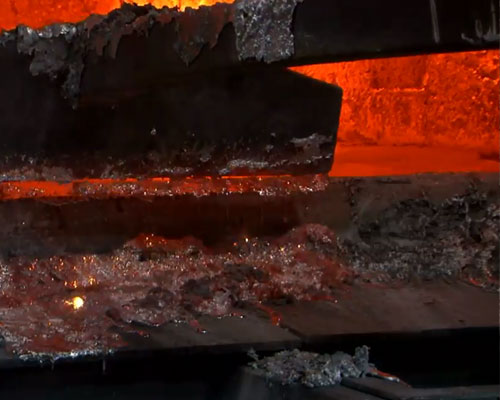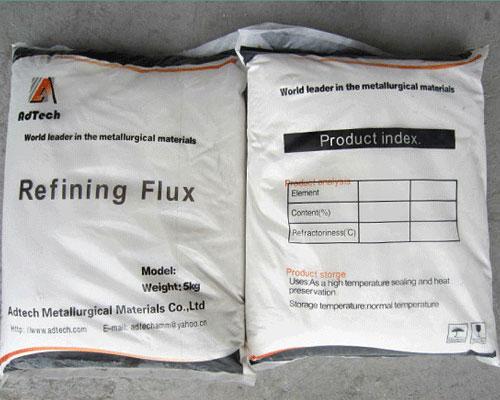Compared with other purification methods in the purification furnace, the aluminum casting flux refining method and gas refining method have a series of advantages such as small investment, low cost, strong operability, and significant purification effect, and are currently widely used refining methods. However, gas purification also has some problems, such as the purity of the gas, the size and uniformity of the bubbles blown into the melt. At the same time, reactive gases are often toxic (such as chlorine) and corrode equipment. Inert gas refining mainly relies on diffusion and degassing, flotation and slag removal to achieve purification. Although it overcomes the shortcomings of active gas corrosion equipment, its purification efficiency is far lower than that of active gas, and it cannot achieve the removal of alkali metals and alkaline earth metals.
It is worth mentioning that in addition to the physical and chemical adsorption, dissolution and combination of the flux with the inclusions in the melt, the aluminum casting flux can also decompose or react with the melt to generate various gases, resulting in gas purification. Different from gas adsorption inclusions, the flux in the molten state can also wet the inclusions, and the kinetic process of adsorption is more effective. This mechanism is more efficient than the gas floatation method for adsorption of inclusions, and can also aggregate inclusions of different sizes. Therefore, more gas-flux mixed refining is used in production, while the advantages of flux and gas are used, and multiple purification mechanisms are combined to achieve efficient purification. However, the process window for gas refining control is relatively narrow, and a large number of studies on gas refining have been reported. At present, more research focuses on the aluminum casting flux refining.

AdTech is dedicated to research and development, production, and marketing of refining flux for degassing and deslagging in molten metal during aluminum alloy casting process. AdTech’s refining flux utilizes unique technology to enhance the traditional degassing and deslagging effect, and this technology applies to the casting process of multi-series aluminum alloy products such as micron-sized aluminum foil, PS baseboard for printing, canning material, elastic packaging material, railway transportation, aerospace products, cable & wire and other casting aluminum purifying.

